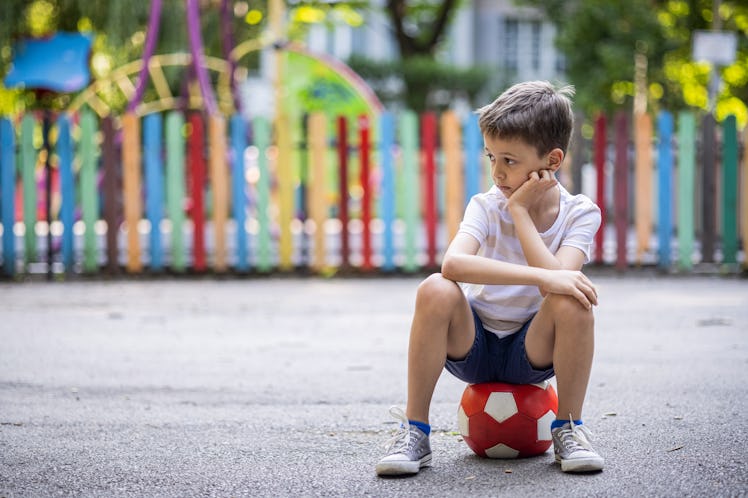Kids Are Quitting Youth Sports In Droves — And We Finally Know Why
Sports are good for kids, but too many external forces are kicking them off fields and courts.

As much as the United States can feel like a sports-crazed society, many kids quit playing organized sports for good before high school. In 2016, a poll from the National Alliance for Youth Sports found that around 70% of kids in the U.S. will stop playing organized sports by the age of 13. And by age 14, girls quit at twice the rate of boys.
The primary reason given in the 2016 poll was that “it’s just not fun anymore.” But new research presented by Nemours Children’s Health at the 2023 American Academy of Pediatrics National Conference & Exhibition has pinpointed some of the specific factors driving the rapid decline in teenage sports participation, including body image issues, social media, gender biases, and coaching styles.
The obvious benefit to youth sports is helping kids reach the Physical Activity Guidelines for Americans recommendation of 60 minutes or more of moderate-to-vigorous physical activity daily — a benchmark that just 24% of school-aged children in the U.S. reach.
But youth sports are good for kids for more reasons than exercise. “The benefits of youth sports participation are numerous and uncontested. Motor competence in children is positively associated with cardiorespiratory fitness, muscular strength, muscular endurance, and a healthy weight status,” lead study author Cassidy M. Foley Davelaar, DO, said in a statement.
According to psychiatrist Sarah Oreck, M.D., organized athletic opportunities are also essential for emotional and social development. “Participation in sports can significantly boost a young person's confidence,” Oreck told Fatherly. “As they improve their skills and meet personal goals, they strengthen their self-esteem and sense of achievement. And team sports, in particular, offer a tremendous opportunity for socialization. Children learn to communicate, navigate conflict, cooperate, and build friendships.”
Those benefits can be life-long. Fatherly recently reported on a study showing that although very few kids who dream of being like Mike end up playing professional sports, young athletes who play in college earn as much as $220,000 more throughout their careers than non-athletes, thanks in large part to the soft skills they learn while playing organized sports.
The Troubling Reasons Kids Are Quitting Sports
The Nemours Children’s Health survey showed a significant correlation between screen time, physical activity, and body image. Many of the kids reported quitting sports because they didn’t feel they could match the performance or appearance expectations of athletes that they see in media and social media, with 60% of respondents reporting that they don’t play a specific sport because they don’t feel as though they “look right” for the sport.
Kids less confident in their athletic abilities also ranked themselves as “less fit” than they perceived an athlete would be on the body image silhouette scale. Cocooning adolescents and teens so that they aren’t exposed to media and social media images of athletes isn’t realistic. However, Oreck does suggest reconsidering social media and the frequency of phone use for children and teens as, in general, children on social media tend to have more issues around self-esteem and body image.
So what can parents do?
“It’s vital for parents to affirm their child's worth beyond their physical appearance or athletic ability,” Oreck says. “Encourage them to express their concerns, and offer reassurance that everyone's body is unique and that health and enjoyment are more important than conforming to any specific image.”
Oreck also encourages parents to control what they can: their own behavior. Parents should ensure that their family's focus on sports is centered on enjoyment and personal growth rather than on winning or performance to help reduce performance pressure on the child. Providing positive validation when kids show improvement, persevere through a difficult situation, or show strong leadership are all healthier approaches than simply highlighting wins and statistical achievements.
“Parents should reflect with curiosity on their own behavior and attitudes toward sports and competition,” Oreck says. “If they notice any negative patterns, such as valuing the child’s achievements over effort or fun, this might be work the parents can do on their own.”
While you’re at it, take a moment to think about how you treat referees. Because if you’re one of the many parents who make officiating a nearly impossible job, you probably aren’t communicating to your kids that sports are about effort and fun.